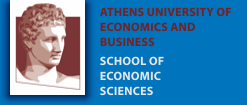| Abstract |
This paper analyzes the root cause of Ellsberg-type choices. This class of problems shares the feature that at the time of the decision, t=m, the decision maker (DM) possesses partial information about the events/propositions of interest: DM knows the objective probabilities of some sub-class only, whereas she is uninformed about the probabilities of the complement of this subclass. As a result, DM may slip into the state of 'comparative ignorance' (see Heath and Tversky 1991 and Fox and Tversky 1995). Under this state, DM is likely to exhibit 'ambiguity aversion' (AA) for the events for which she does not have any information relative to those for which she does. AA, in turn, results in DM having non-coherent beliefs, that is, her prior probability function is not additive. A possible way to mitigate AA is to motivate DM to form her prior in a state of 'uniform ignorance'. This may be accomplished by inviting DM to bring herself to the hypothetical time t=0, in the context of which the information was still a contingency, and trace her "counterfactual prior back then". Under uniform ignorance, DM may adhere to the 'Principle of Indifference', thus identifying the prior counterfactual probability with the uniform distribution. Once this probability is elicited, DM can embody the existing information into her current, actual set of beliefs by means of Bayesian Conditionalization. In this case, we show that this set of beliefs is additive. |

